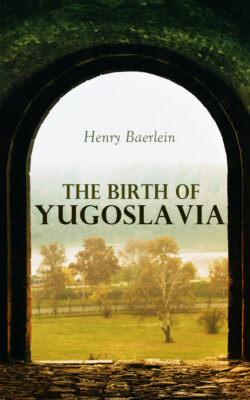Читать книгу The Birth of Yugoslavia - Henry Baerlein - Страница 39
На сайте Литреса книга снята с продажи.
ACTIVITIES OF THE SOUTHERN SLAVS UNDER THE HABSBURGS
ОглавлениеIn the Banat and elsewhere under Habsburg rule the Serbs were filling their accustomed part and fighting, now against the Turk and now against Rakoczi's insurrection, during which, between 1703 and 1711, they are said to have lost about a hundred thousand men. Prince Eugene of Savoy, in whose campaigns they took a large share, described them as "his best scouts, his lightest cavalry, his most trusted garrisons." And they are rewarded—Joseph i., making use of very chosen phrases, insists on the merits of the Serbs and confirms their privileges. And until the Treaty of Pojarevac these privileges are maintained immune. This treaty came at the conclusion of the 1716–1718 war against the Turks; it put the Banat in the hands of Austria, who made it a Crown-land, with military government and autonomous administration. From this time onward the country, which had had an exclusively Serbian colouring, begins to receive an influx of strangers. The German governing class introduce Germans from the Rhine, from Saxony, from Würtemberg, Bavaria, Upper and Lower Austria and Tirol. Not only are these colonists settled in some of the most fertile parts, but Vienna also makes enormous grants of land in the Banat to lofty military personages and to families of the aristocracy, and these in their turn assist the immigration of Germans.
But before the Habsburgs could continue in their efforts to assimilate, by one process or another, the Southern Slavs in the Empire, it was necessary to induce them to accept the Pragmatic Sanction, for Charles VI., the reigning Emperor, had lost his only son and wished to secure the succession to Maria Theresa. It is interesting to see that Croatia negotiated independently of Hungary, that she recognized the Pragmatic Sanction in 1713, whereas the Magyars did not do so until 1733. Consequently, if the Emperor had died between these two dates Croatia would have been separated completely from Hungary. Maria Theresa would have become Queen of Croatia, but the Magyars would not have been obliged to place themselves under her. The Croats on this occasion declared that the crown of Croatia was to pass to that member of the House of Habsburg who should reign not only in Austria but also in the other hereditary Austrian lands, for the Croats wanted publicly to show that any separation from the Slovenes of Carniola, Carinthia and Styria would be far less endurable for them than separation from Hungary. "It is neither by force nor yet the spirit of slavery," they said, "that we have been put under the domination of Hungary; we have submitted ourselves voluntarily, and not to the royalty but to the king of the Hungarians."
The Serb and Croat element in the Austrian army was at this time greater than the sum of all the others, and, owing to the privileges which their services acquired for them, they came to be regarded with extreme suspicion by the Magyars. It was under Magyar influence that Maria Theresa abolished the Croatian council, confided its functions to the Hungarian Government, and, on the same occasion, in 1779, proclaimed the town of Rieka (Fiume), with its surroundings, to be "separatum sacræ regni Hungariæ coronæ adnexum corpus." Rieka, like Triest, had been a free town under the Habsburgs, the reason being that they were the chief arteries of trade, so that a greater freedom was desirable. Like Triest, Rieka does not appear up to this date to have shown any hankering for Venice, and Maria Theresa's diploma which renews the freedom is hardly evidence, as some people have asserted, that the town was throbbing with Italian sympathies.
